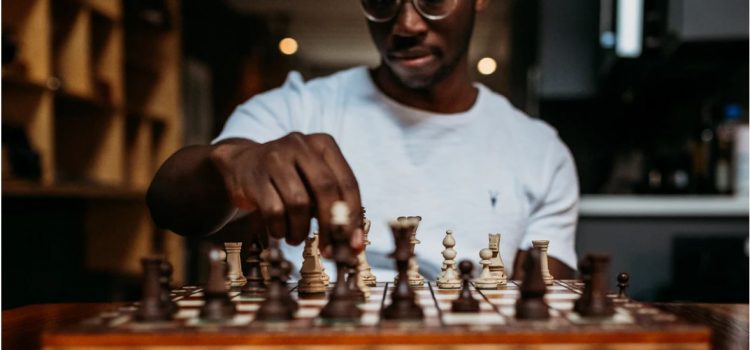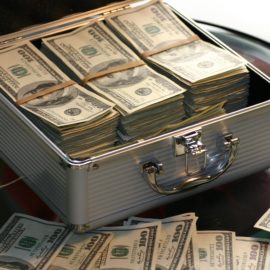

This article gives you a glimpse of what you can learn with Shortform. Shortform has the world’s best guides to 1000+ nonfiction books, plus other resources to help you accelerate your learning.
Want to learn faster and get smarter? Sign up for a free trial here .
What is the ten-thousand-hour rule? Who first came up with the rule, and what is the research behind it?
The ten-thousand-hour rule basically says that you need to practice a skill for at least ten thousand hours before you can be considered an expert. After Malcolm Gladwell published these findings in his book Outliers, there have been a number of criticisms.
Here’s why the ten-thousand-hour rule doesn’t hold up.
History of the Ten-Thousand-Hour Rule
The ten-thousand-hour rule was popularized in Malcolm Gladwell’s 2008 book Outliers. Gladwell stated that “ten thousand hours is the magic number of greatness.” Basically, Gladwell explained that you must practice a skill for ten thousand hours in order to be considered an expert at it. Gladwell cited studies showing that the most masterful individuals in their fields have practiced their craft for at least 10,000 hours (which averages nearly 20 hours every week for 10 years or 40 hours every week for 5 years).
Since Outliers came out, there have been numerous debates as to whether the ten-thousand-hour rule is valid or not.
TITLE: Outliers
AUTHOR: Malcolm Gladwell
TIME: 31
READS: 30.5
IMG_URL: https://www.shortform.com/blog/wp-content/uploads/2019/08/outliers_cover.jpg
BOOK_SUMMARYURL: outliers-summary-malcolm-gladwell
AMZN_ID: B001ANYDAO
K. Anders Ericsson’s Research
K. Anders Ericsson, the psychologist who led the study from which Gladwell gleaned the ten-thousand-hour rule, has criticized Gladwell for misrepresenting his research findings. In the study, Ericsson and his fellow researchers asked top-ranked violinists to estimate how many hours they’d spent practicing since picking up the instrument; they found that, on average, elite violinists had dedicated 10,000 hours of deliberate practice to their craft.
Ericsson has argued in papers (including one pointedly titled “The Danger of Delegating Education to Journalists”) and in his book, Peak, that Gladwell oversimplified the results by making two mistakes:
- He applied data about violinists to all fields, when it’s unreasonable to assume that all fields require the same amount of practice to achieve mastery.
- He neglected to specify that the type of practice is far more important than the amount of time spent practicing. Ericsson’s study emphasizes that mastery requires deliberate practice, which is an intensely focused and effortful form of practice that constantly pushes the practitioner to stretch their abilities.
TITLE: Peak
AUTHOR: Anders Ericsson
TIME: 31
READS: 23
IMG_URL: https://www.shortform.com/blog/wp-content/uploads/2020/01/peak-cover.jpg
BOOK_SUMMARYURL: peak-secrets-from-the-new-science-of-expertise-summary-anders-ericsson
AMZN_ID: B011H56MKS
In response, Gladwell has since clarified that he wasn’t suggesting that 10,000 was a universal magic number (even though he writes in Outliers that “Ten thousand hours is the magic number of greatness,” and he’s the first to dub this concept with the name, the 10,000-Hour Rule). Instead, Gladwell seems to use the theory to reinforce the importance of time in achieving success, which sets up his larger point that having that time in the first place is a privilege that not everyone has.
This may be another case where Gladwell’s popularity inadvertently fuels the criticisms against him: Because Outliers was so widely read, he is largely responsible for introducing this concept to the masses. As a result, his popularization of the ten-thousand-hour theory is often conflated with his endorsement of it.
Is Being a Specialist Even a Good Thing?
According to David Epstein, the author of Range, the traditional path to excellence has been more or less treated as common sense for years. Obviously, if you want to get good at something, you have to practice a lot. By this logic, the path to success is to start deliberately practicing as early as possible.
TITLE: Range
AUTHOR: David J. Epstein
TIME: 46
READS: 109
IMG_URL: https://www.shortform.com/blog/wp-content/uploads/2021/09/range-cover.png
BOOK_SUMMARYURL: range-summary-david-j-epstein
AMZN_ID: XYZ
If you believe in a purely linear relationship between practice time and success, specializing at a young age and never deviating from a given path would allow humans to accomplish never-before-seen levels of greatness. Extreme devotees of the ten-thousand-hour rule apply this logic to everything.
For example, Epstein describes Laszlo Polgar, who deliberately raised three of his daughters to be world-class chess masters and proclaimed to the world that if more children were brought up deliberately practicing from birth, they could become skilled enough to easily cure diseases such as cancer and AIDS.
Even if you don’t believe quite this deeply in the role of deliberate practice, it’s likely that you’re giving it more credit than it deserves.
Nature Versus Nurture
Epstein isn’t the first person to critique the traditional path to excellence. Studies have shown that genetics still play a significant role in skill acquisition. Experiments testing twins on fundamental musical skills showed that some skills, such as the instinct to match melodies with the same rhythm, are entirely gene-dependent—discrepancies in hours spent practicing had no impact. A broader study found that identical twins are far more likely to have similar levels of drawing ability than fraternal twins.
However, a disproportionate reliance on genetic contributions to success has its own problems. If you become convinced that your ineffective genes prevent you from succeeding, you’ll give up before you’ve even begun. Studies have confirmed that high self-esteem leads to increased initiative, as well as greater ability to set and achieve goals. In this way, unrealistic beliefs—such as Laszlo Polgar’s faith that scientific prowess can be taught from birth—can be beneficial, even if they’re not true.
Example: Chess Players
Neil Charness, a psychologist, studied how chess players practice to see if different practicing methods made a difference to their skill level. Charness looked only at people who had acquired 10,000 hours of practice.
Of the players who had 10,000 hours of practice, some had achieved the rank of grandmaster and others were at an intermediate level. Since they all had the same amount of experience, there must have been another factor that determined who became an expert and who didn’t progress and stayed intermediate.
At the time, there was a debate among chess players about which of two practice methods was most effective. The methods were:
- Playing in tournaments, which forced players to adhere to a time limit and deal with distractions.
- Reading books and training with coaches, which forced players to identify their weaknesses and then train to overcome them.
Charness discovered that seriously studying the game was far more effective than any other practice method. The people who became grandmasters had spent half of their 10,000 hours on serious study. The people who stayed intermediate had spent only 10% of their time on serious study.
This is because playing in tournaments doesn’t offer an appropriate challenge, the first ingredient of deliberate practice. In a tournament, chess players often aren’t evenly matched against their opponents. Face off against a far more skilled opponent than you, and you won’t be challenged—you’ll be destroyed. Face off against a far less skilled opponent, and you won’t be challenged because winning is too easy.
Serious study, on the other hand, is tailored to your skill level at any point in time. As you improve, you can adjust your study to make it more challenging. Additionally, serious study also offers the second requirement of deliberate practice: immediate feedback. You can look up how to solve a chess problem if you can’t figure it out by yourself, or if you have a coach, she can tell you what you’re doing wrong.
Conclusion
It looks like Malcolm Gladwell wasn’t completely wrong when he proposed the ten-thousand-hour rule. Expertise is based largely on practicing a lot—however, it needs to be the right kind of practice. Additionally, genetics play a role, although it would be difficult to pinpoint just how much influence they have.
So, if you’re trying to become an expert at a skill, you need to devote time to deliberately and strategically practicing your craft—and stop tracking hours.
Have you heard of the ten-thousand-hour rule? Do you feel like quantity or quality matters more when it comes to practice? We’d love to hear your opinions in the comments below.

Want to fast-track your learning? With Shortform, you’ll gain insights you won't find anywhere else .
Here's what you’ll get when you sign up for Shortform :
- Complicated ideas explained in simple and concise ways
- Smart analysis that connects what you’re reading to other key concepts
- Writing with zero fluff because we know how important your time is






